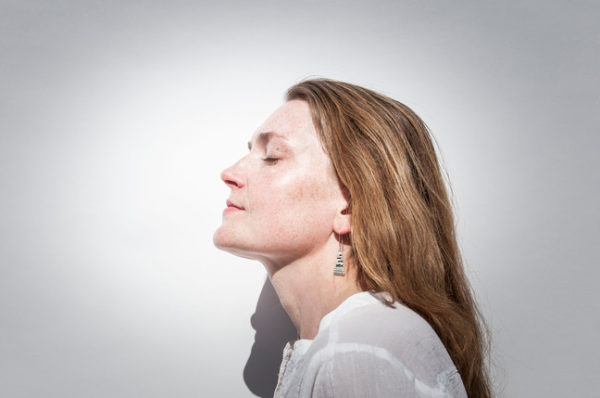
Two people sing at WORN Journal's 5th Heartbreak Karaoke party. Image by Becca Lemire/Flickr (CC BY-NC-SA 2.0)..
A Philosophy of Karaoke
Karaoke is a strange thing, isn’t it? We sip on drinks while watching friends and sometimes strangers sing untunefully, and we take pleasure in it. We get up on stage in spite of our fears and melodic inabilities, we open our lungs and our hearts, and we enjoy it.
From the neon booths frequented by teenage girls in Tokyo to the sprawling outdoor karaoke concerts in Berlin, from the SingStar battles between family members on Christmas day to karaoke nights in all-inclusive resorts in Benidorm — karaoke is a global phenomenon. Karaoke might have originated in Japan, but there is something in its appeal that has taken it to a far larger and more varied audience since its inception.
So what place inside us does karaoke reach that a night sitting in the pub with good friends, an evening playing board games with your family, or a day reading your favorite novel not quite access?
I used to think that the magic ingredient was humiliation. When one of my friends was scared about showcasing an unrehearsed rendition of “Jolene,” I would remind him that humiliation is good for the soul.
For many years, I was sure that the essential goodness, the leveling quality of karaoke, was its ability to take us down a peg or two, to remind us that we should not take ourselves nor life too seriously. This might be part of it, but humiliation is not an inherently good thing. The kid who has his trousers pulled down in the middle of the playground probably doesn’t spend the following days appreciating a new sense of life balance. The person who constantly puts themselves down because they don’t feel worthy enough to apply for that job or to ask that person out is probably not getting much a kick from their self-flagellation either.
What I failed to comprehend about karaoke, for a long time, is that although it can feel like an individual experience when the spotlight is isolating you on the stage, its power really lies in the way it connects.

While it can be scary to get up on stage and sing a Whitney Houston song when you don’t have the voice of a diva, what anybody who has been to a karaoke night can attest to is that the audience will be on your side regardless. When you hit a bum note, as you invariably will, the audience will smile throughout, stick with you until the end, and genuinely enjoy the performance right to its last quivering note. And if there is laughter in the audience, it is not laughter aimed at your failings as an imperfect singer — it is a collective laughter that shares in the joy of being imperfect.
One of the toughest things about 21st century life is the constant quest for perfection that we are pressured into seeking. Children are told that they are special and that they can achieve anything (cut to the gut wrenching feeling of being picked last for the football team or achieving 60% on a test). We lean on technology in a desperate bid to free up our time, and then we use that time to work more hours and make ourselves more stressed out. We compare our own stories to those of entrepreneurs who build empires from nothing to become billionaires, and we fail to pat ourselves on the back for listening to a friend or giving ourselves a good night of sleep.

A simple fact of life is that the rough comes with the smooth, and when we don’t have the biggest house on the street, when we have fear about quitting our job, when we can’t reach the high note of the Whitney Houston song, that’s all okay because that’s what life is. As long as we keep ourselves on track by not dwelling in the negative, an essential sense of joy, even in life’s challenges, is revealed.
It’s that place in us that karaoke unlocks.
It’s rare that we are told that it’s okay to fall short, that we actually need to fall short in order to ground ourselves in the world and really appreciate the highs when they do happen. But with karaoke, we can tangibly experience that life lesson. When we are rooting for someone on stage singing a Celine Dion song, and when they sing every note out of tune, we are rooting for our inadequacies, our inabilities, for all the times that the guy on stage, ourselves, and everyone else in the room didn’t quite hit the mark. We are making peace with that and finding joy in it.
This is not an anti-effort manifesto. What nervously holding the microphone demonstrates to us is that even when we have the very best intentions, even when we put 100% into our performance, the result could still be imperfect, rough around the edges, and just a bit silly. But does that stop us from trying to imitate the warbles of Beyoncé and the intricate trills of a young Michael Jackson? Of course not.
When we are at a karaoke night, we join together in an anti-productivity, anti-efficiency, anti-perfection moment when we are all enough, exactly as we are, bum notes and all.

